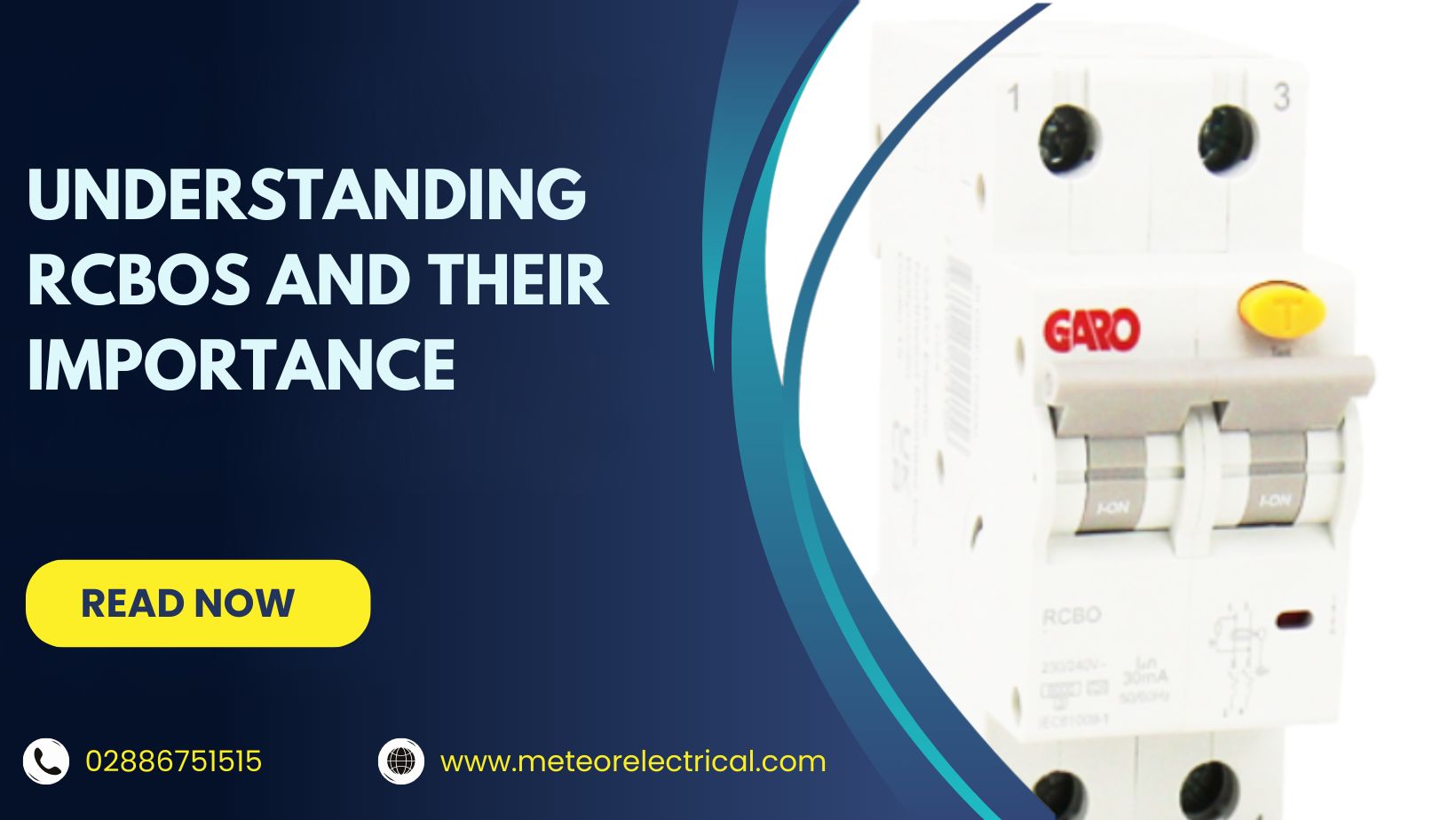Understanding RCBOs and Their Importance
Understanding RCBOs and Their Importance
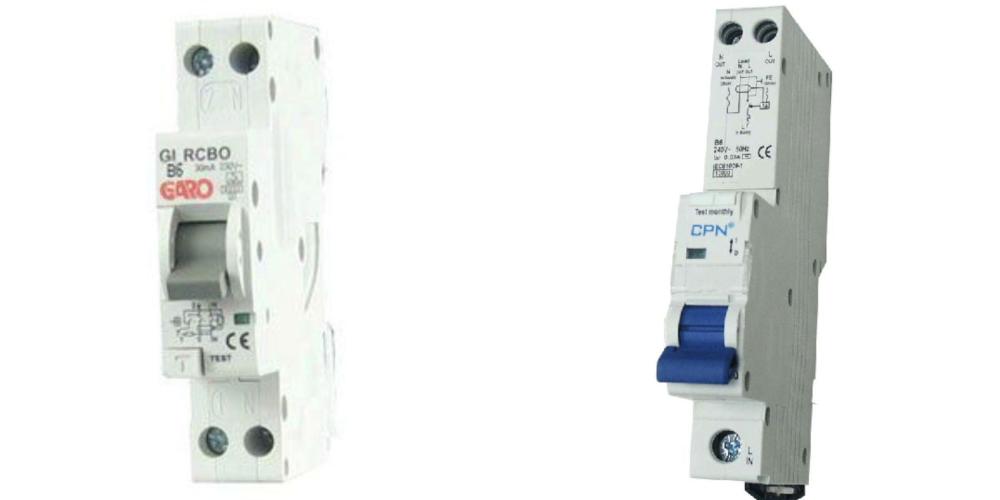
In today’s increasingly digital world, electrical safety is more critical than ever. As homes and businesses become more reliant on complex electrical systems, protecting those systems from faults is a top priority. Enter the Residual Current Breaker with Overcurrent Protection (RCBO) – a compact, intelligent device designed to keep you and your property safe from two of the most common electrical hazards: overcurrents and earth leakage currents.
In this comprehensive guide, we will explore what RCBOs are, how they work, where they are used, and why they are recommended by professionals across residential, commercial, and industrial sectors.
What is an RCBO?
RCBO stands for Residual Current Breaker with Overcurrent Protection. It combines the functions of two other essential safety devices:
- The RCD (Residual Current Device), which protects against earth leakage currents
- The MCB (Miniature Circuit Breaker), which protects against overcurrents and short circuits
By integrating both protections into one unit, an RCBO provides a comprehensive safety solution, making it ideal for modern electrical installations.
Unlike RCDs, which may cover multiple circuits, RCBOs are designed to protect individual circuits. This means a fault in one area – for example, your kitchen – will not cause a power cut across the whole property.
How Does an RCBO Work?
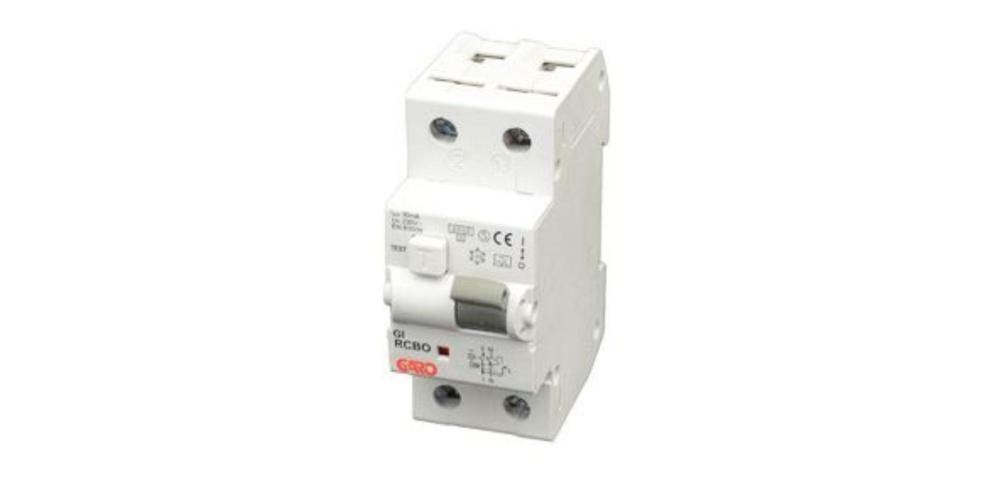
An RCBO functions by constantly monitoring the electrical current flowing through both the live and neutral wires. If it detects an imbalance – usually caused by a leakage or overload – it disconnects the power supply to prevent harm.
Here are the three primary faults RCBOs protect against:
1. Overload
This occurs when too many devices are plugged into one circuit. For instance, using a heater and a kettle on the same socket might draw too much current. RCBOs detect overloads and switch the power off, avoiding overheating and fire hazards.
2. Short Circuit
A short circuit happens when electricity travels along an unintended path, such as through damaged insulation. RCBOs act instantly to cut the power, preventing sparks and potential fires.
3. Earth Leakage
This is when electricity escapes from the circuit and flows to earth, possibly through a human body. RCBOs sense the imbalance and shut the circuit down within milliseconds, greatly reducing the risk of electric shock.
RCBO vs. RCD vs. MCB vs. RCCB
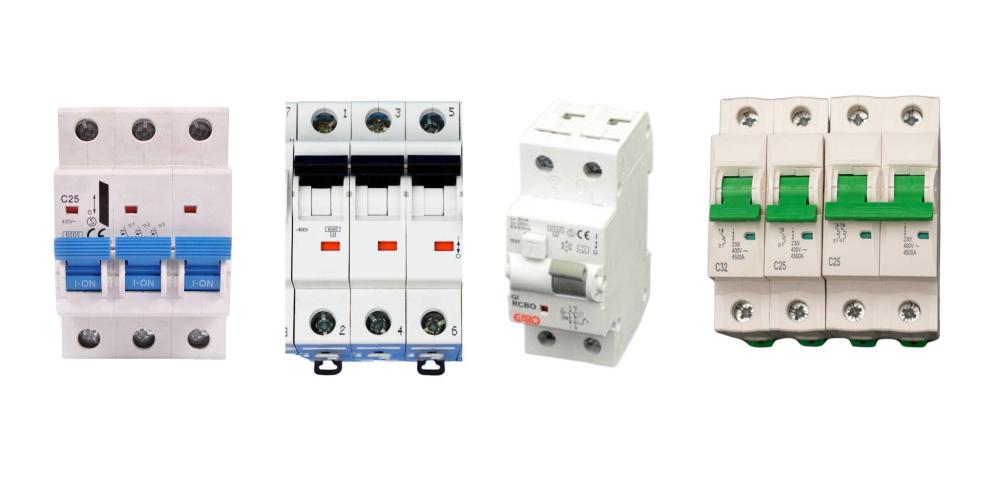
To better understand where RCBOs fit in, here is a comparison in plain terms:
- MCB (Miniature Circuit Breaker): Protects against overcurrent but not earth leakage.
- RCD (Residual Current Device): Protects against earth leakage but not overcurrent.
- RCCB (Residual Current Circuit Breaker): Similar to an RCD, mainly used for detecting earth faults.
- RCBO: Combines the benefits of both MCBs and RCDs, protecting against overcurrents and earth leakage in a single unit.
This combination makes RCBOs a popular choice for electricians looking to offer enhanced safety on a per-circuit basis.
Credit: The Electrical Guy
Types of RCBOs and Their Applications
Type B RCBOs
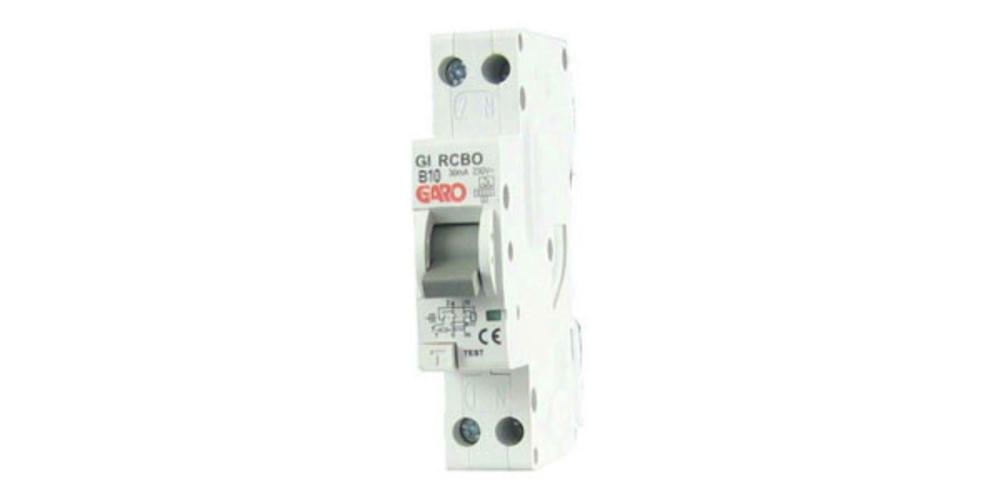
Ideal for domestic use, these trip when fault currents reach 3 to 5 times the rated current. They are suitable for lighting circuits and household appliances.
Example: GARO Type B 20A 30mA RCBO
- Designed for home use
- Disconnects both live and neutral wires
- Includes test button
- Meets BS EN 61009 safety standards
Type C RCBOs
Designed for commercial and industrial settings, they trip at 5 to 10 times the rated current. These are ideal for environments with high inrush currents, such as machinery and motors.
Example: GARO Type C 10A 30mA RCBO
- Withstands higher surge currents
- Prevents unnecessary tripping
- CE approved and RoHS compliant
Type A and Type AC RCBOs
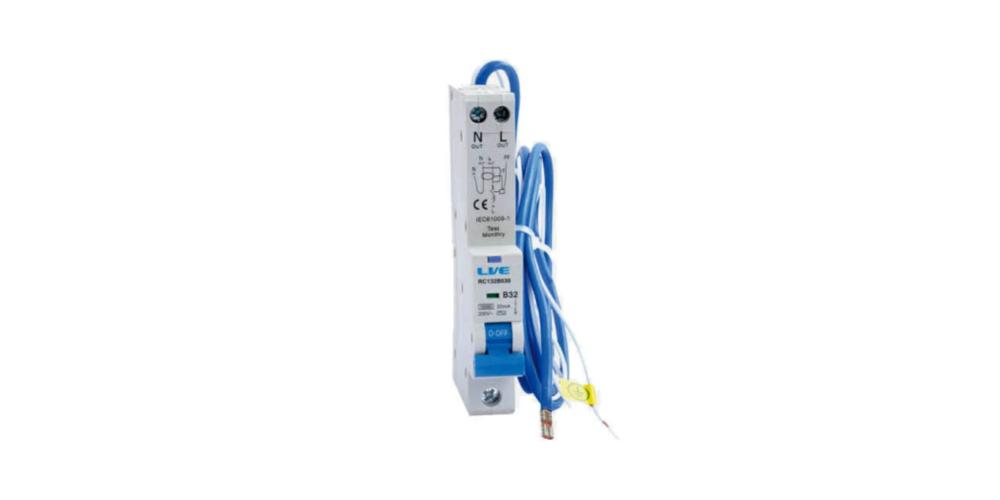
- Type A RCBOs detect both AC and pulsating DC currents, commonly found in modern appliances.
- Type AC RCBOs detect only AC currents and are gradually being replaced by Type A models for broader protection.
Where Are RCBOs Used?
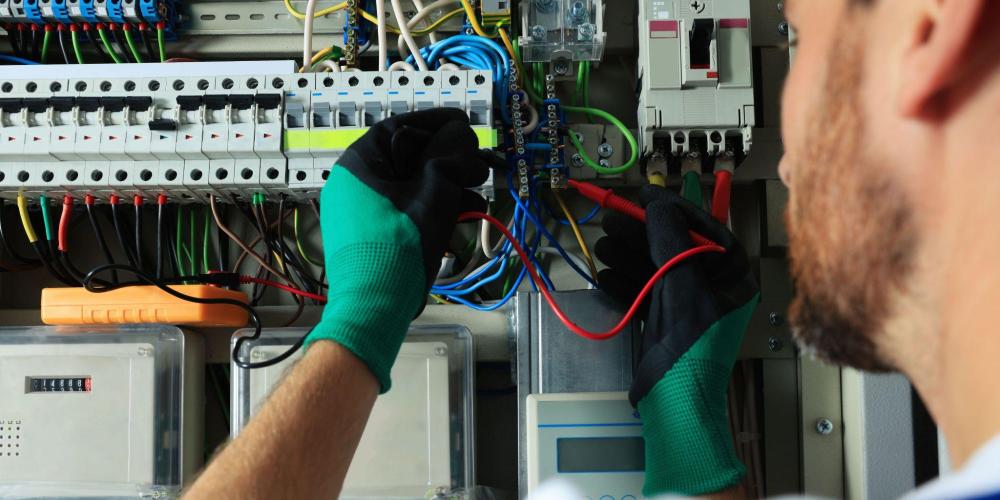
Residential Applications
RCBOs are perfect for homes, especially for circuits powering washing machines, dishwashers, cookers, or electric showers. If a fault occurs in one appliance, only that circuit is affected, avoiding a total power cut.
Commercial and Industrial Environments
Factories, warehouses, and office buildings benefit from RCBOs as they ensure fault isolation without affecting the whole electrical system. This limits downtime and protects valuable machinery.
Outdoor Use
Garden lighting, external sockets, water features, and hot tubs all operate in environments where moisture is a concern. RCBOs provide protection against electric shocks in such settings, especially when installed in waterproof enclosures.
Benefits of Using RCBOs
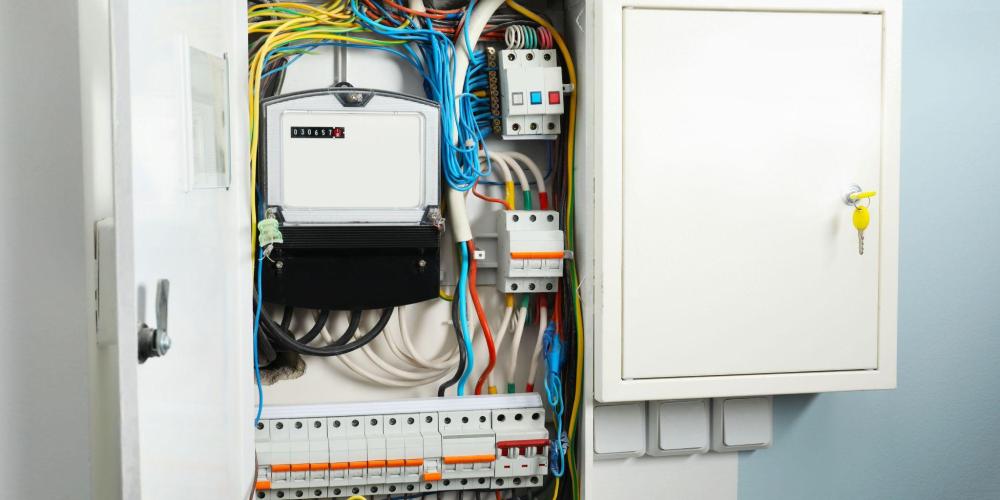
Comprehensive Safety
RCBOs offer protection against both overcurrents and earth leakage, reducing the risk of electric shock, electrical fires, and property damage.
Circuit Isolation
By installing one RCBO per circuit, faults are contained. If a socket trips in the kitchen, the rest of the house continues to function normally.
Wide Application
RCBOs can be used in:
- Domestic properties
- Commercial installations
- Temporary site setups
- External or garden power outlets
Regulatory Compliance
The 18th Edition of the IET Wiring Regulations (BS 7671) recommends RCBOs for many new and upgraded installations. Using them ensures your setup meets modern safety standards.
Installation and Maintenance Tips
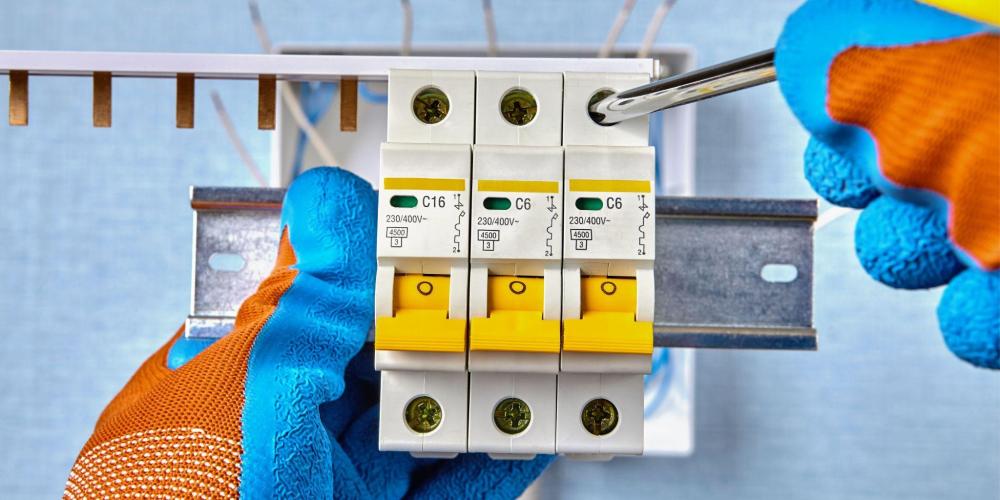
Installation Guidelines
- Choose the right amperage – for example, 6A for lighting, 32A for kitchen sockets.
- Double-pole RCBOs (which disconnect both live and neutral wires) offer extra safety.
- Only a qualified electrician should carry out installation.
Maintenance Tips
- Test RCBOs every six months using the built-in test button.
- Keep a record of test dates – especially for commercial sites.
- If an RCBO fails a test, it should be replaced immediately.
Credit: John Ward (jwflame)
Are RCBOs Mandatory in the UK?
While RCDs are legally required for power and lighting circuits, RCBOs are not mandatory. However, they are strongly recommended.
Electricians often prefer RCBOs because:
- They reduce nuisance tripping
- They simplify fault-finding
- They allow per-circuit protection
- They future-proof electrical systems
RCBOs vs. Split Load Boards
Split load consumer units divide circuits between two RCDs. A fault in one circuit could still trip multiple circuits connected to the same RCD, leading to a partial power cut.
In contrast, RCBO consumer units protect each circuit individually. A fault only affects that specific area, making this approach far more efficient and convenient for users.
RCBOs and UK Safety Regulations
RCBOs help meet key safety standards, including:
- BS EN 61009-1: Governs performance standards for RCBOs
- BS 7671: UK Wiring Regulations
- Testing recommendations: At least every six months
RCBOs make it easier to comply with these requirements and are especially important in high-risk areas like bathrooms and kitchens.
Choosing the Right RCBO
When choosing an RCBO, consider the following:
- Amperage Rating: Use 6A for lights, 32A for sockets, etc.
- Curve Type: Type B for homes, Type C for commercial settings
- Number of Poles: Double-pole models are safer
- Compliance: Choose models that meet BS EN 61009
- Environment: For outdoor use, ensure weatherproof housing is used
RCBO Solutions at Meteor Electrical
Meteor Electrical stocks a wide range of GARO RCBOs, including:
- Type B and Type C models in various current ratings
- Consumer units pre-installed with RCBOs and RCCBs
- Accessories for full circuit protection
- Products compliant with BS EN 61009, CE marked and RoHS approved
Explore the full range on our website: Meteor Electrical
Final Thoughts
RCBOs are a modern and effective way to protect individual circuits in residential, commercial, and outdoor settings. They combine the advantages of RCDs and MCBs, offering both overload and earth fault protection in a single device.
Whether you are upgrading your home consumer unit or designing an industrial power setup, investing in RCBO protection is a smart, compliant, and safe decision.
Visit Meteor Electrical to explore our selection of GARO RCBOs, consumer units, and safety accessories – or contact us via [email protected] or live chat to speak with our experts.
Frequently Asked Questions
What does RCBO stand for?
Residual Current Breaker with Overcurrent Protection. It combines RCD and MCB functionality.
Are RCBOs better than RCDs?
Yes. They provide individual protection per circuit and avoid the risk of multiple circuits tripping together.
How often should RCBOs be tested?
Every six months, using the test button on the device.
Can RCBOs be used outdoors?
Yes. They are ideal for external circuits when installed in IP-rated weatherproof enclosures.
What is the difference between Type B and Type C RCBOs?
Type B is for domestic use with low inrush currents. Type C is suitable for commercial or industrial settings where higher surge currents are expected.

